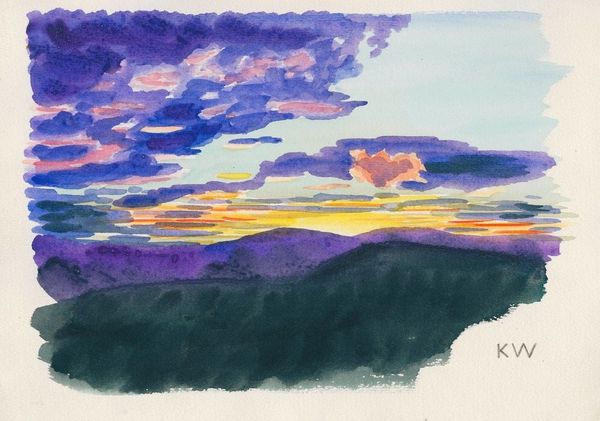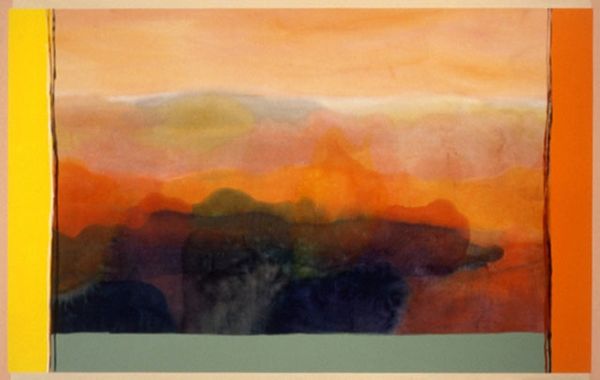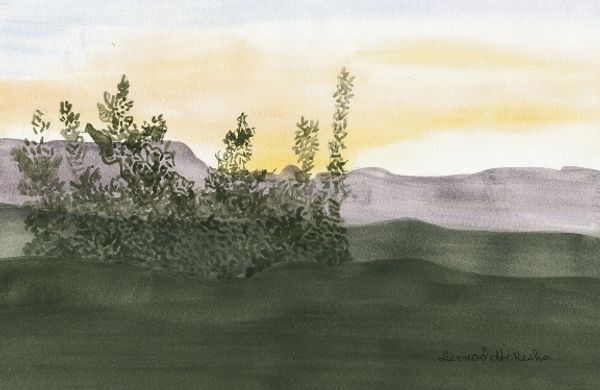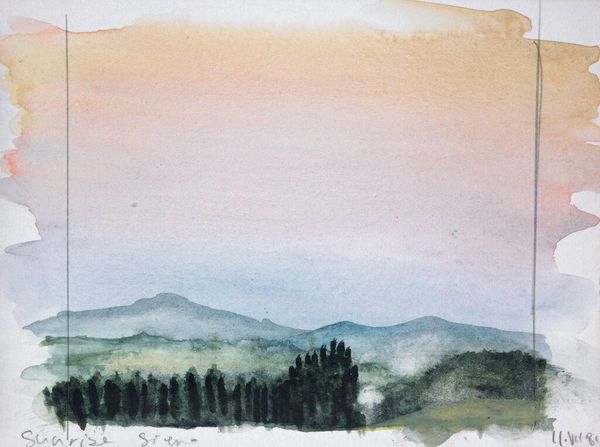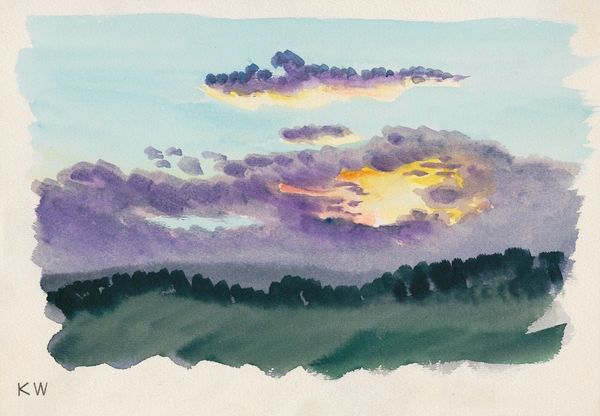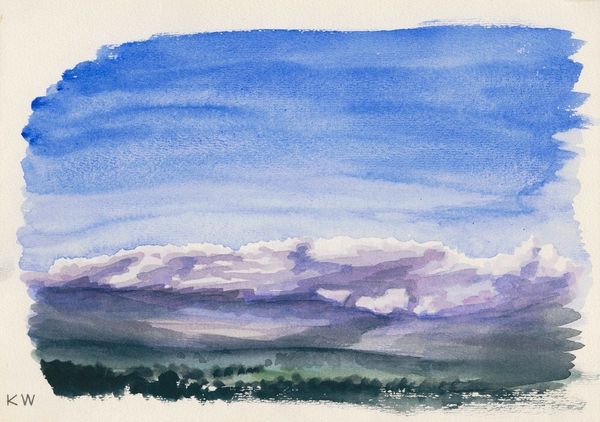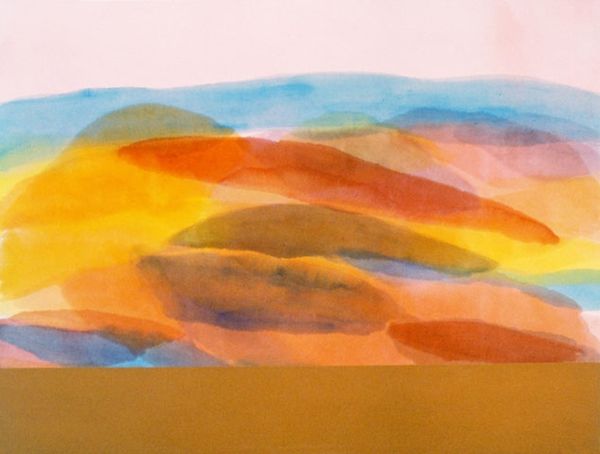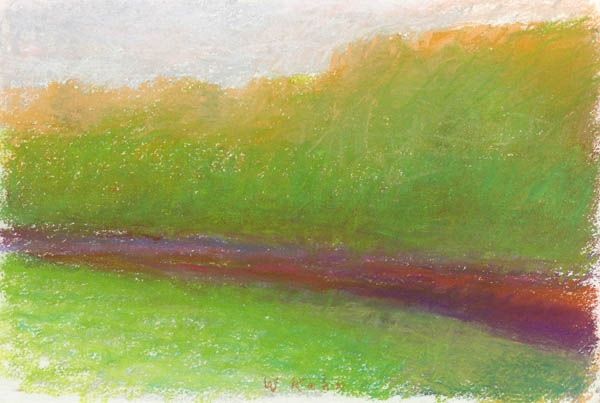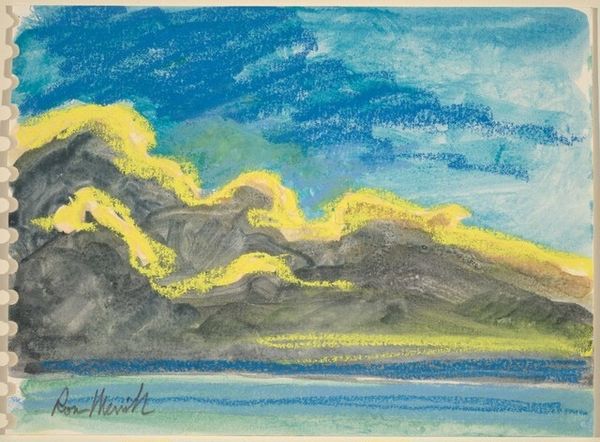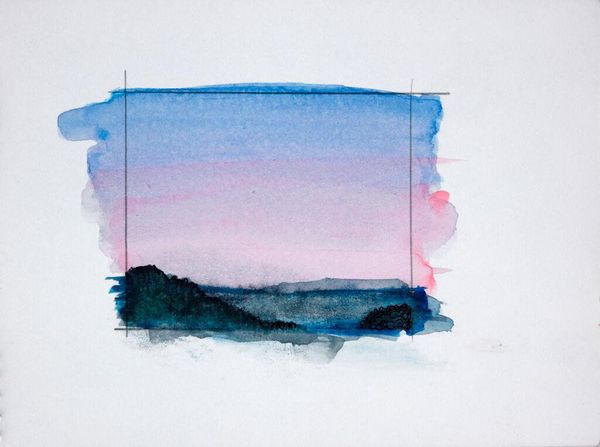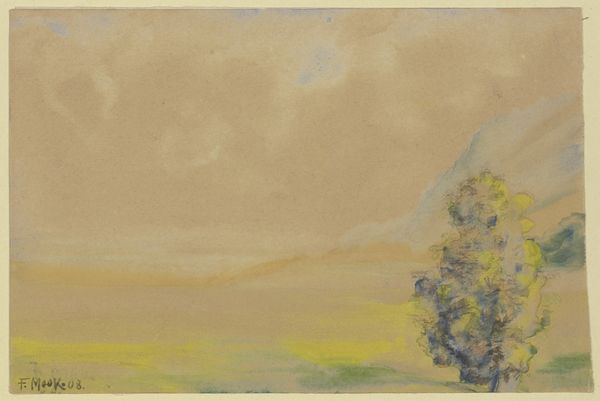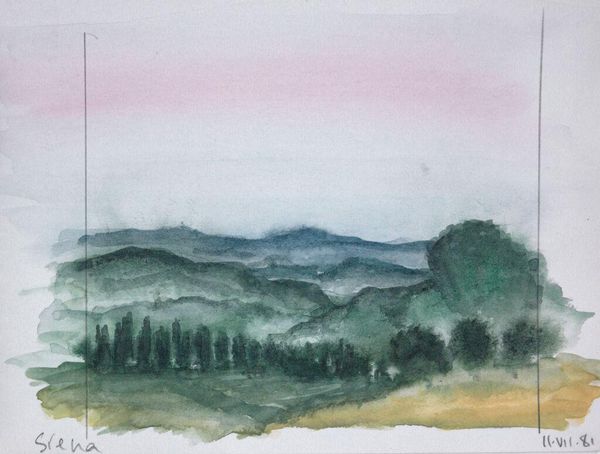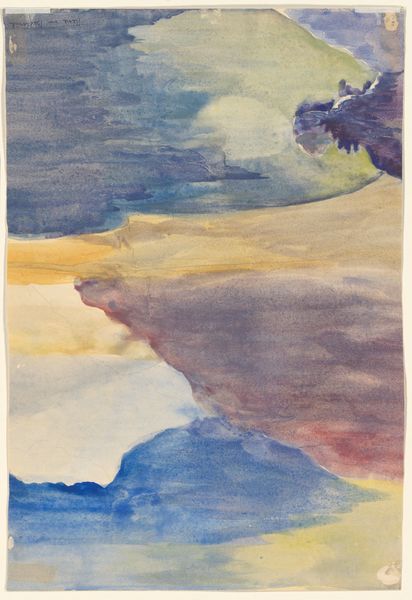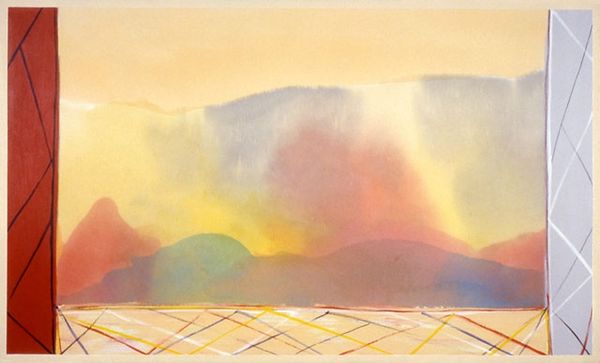
Copyright: Wolf Kahn,Fair Use
Editor: This is "Evening Distance," a 2006 pastel drawing by Wolf Kahn. The landscape is really striking, almost a study in color blocks. How do you read it? Curator: What I find fascinating is how Kahn situates himself within a historical dialogue about landscape art. Think about the Hudson River School and its romantic idealization of nature. Now contrast that with Kahn’s approach. He simplifies, abstracts. What effect does that abstraction have, do you think? Editor: Well, it feels less like a specific place and more about capturing a feeling, or a memory of a landscape. It definitely prompts you to consider what "nature" is and how it’s represented, compared to say, a photorealistic painting. Curator: Exactly! He’s prompting us to question our very ideas of landscape painting. How do cultural expectations shape our understanding of what is being represented? Is this piece a political act simply because it is questioning established notions of painting? Editor: I guess so. I never thought about art needing to make a political statement through something as simple as *how* you portray a landscape. I always just focused on content! Curator: Consider how access to art and art education have been historically uneven. Someone like Kahn, trained in modernist principles, then chooses to depict a landscape, historically the domain of the wealthy patron... It’s all interwoven. Editor: This really changes how I see landscape art. Thanks for pointing that out! Curator: And thank you. It’s a useful reminder to me, too, that seeing isn't passive. We’re always in dialogue with the work and with our understanding of the world.
Comments
No comments
Be the first to comment and join the conversation on the ultimate creative platform.
